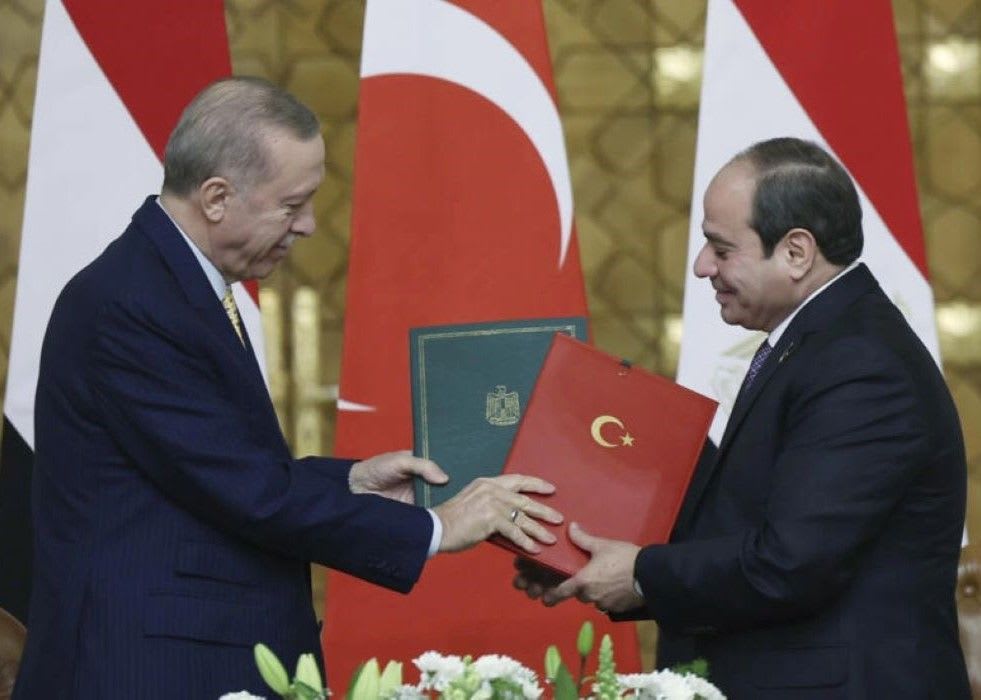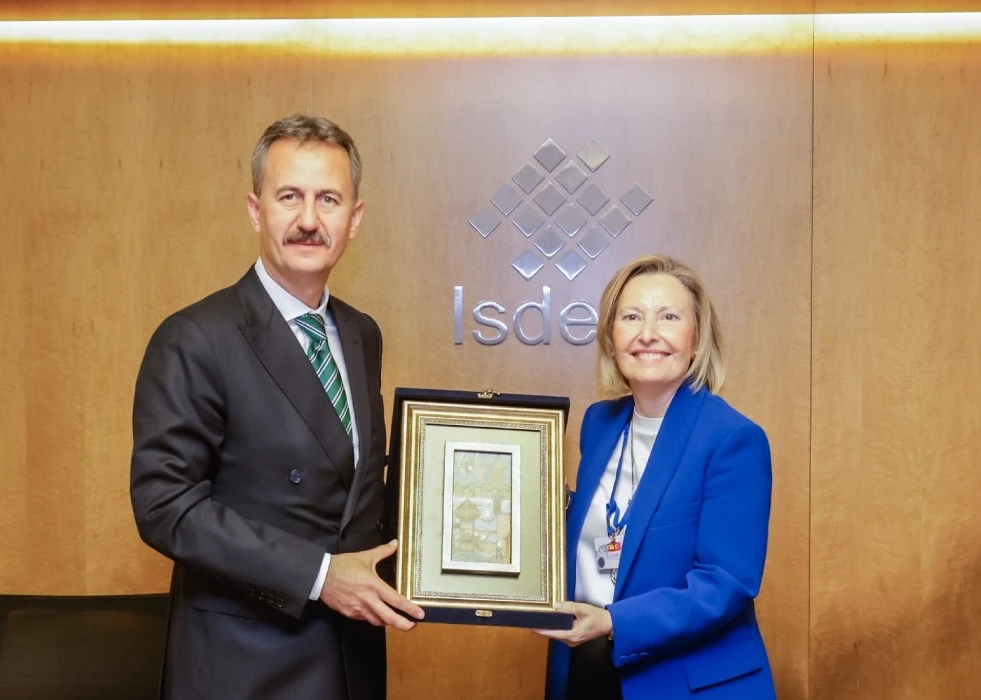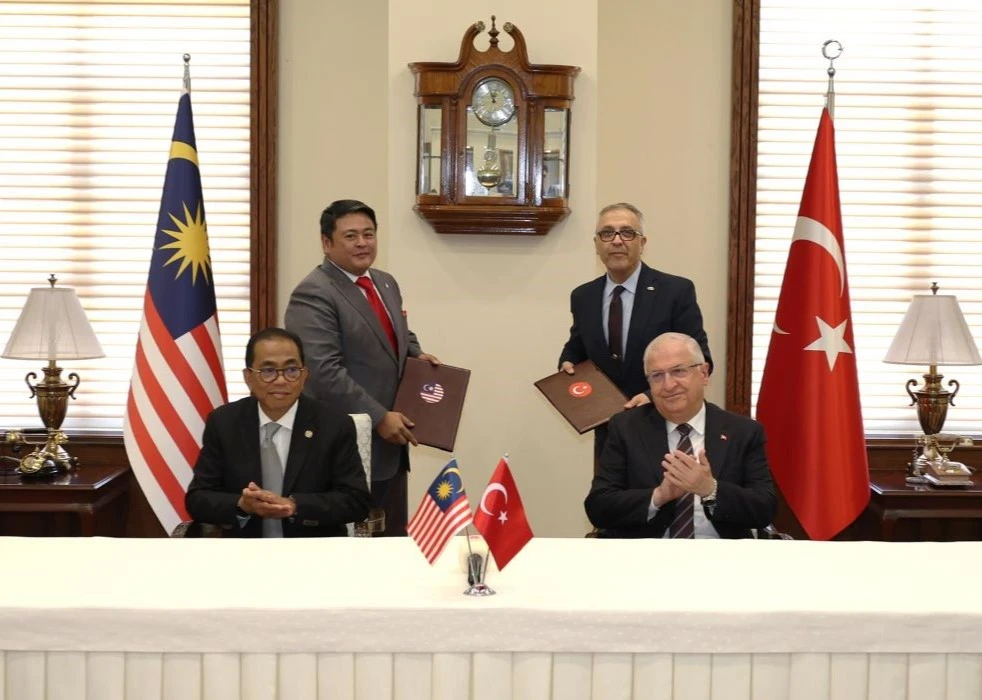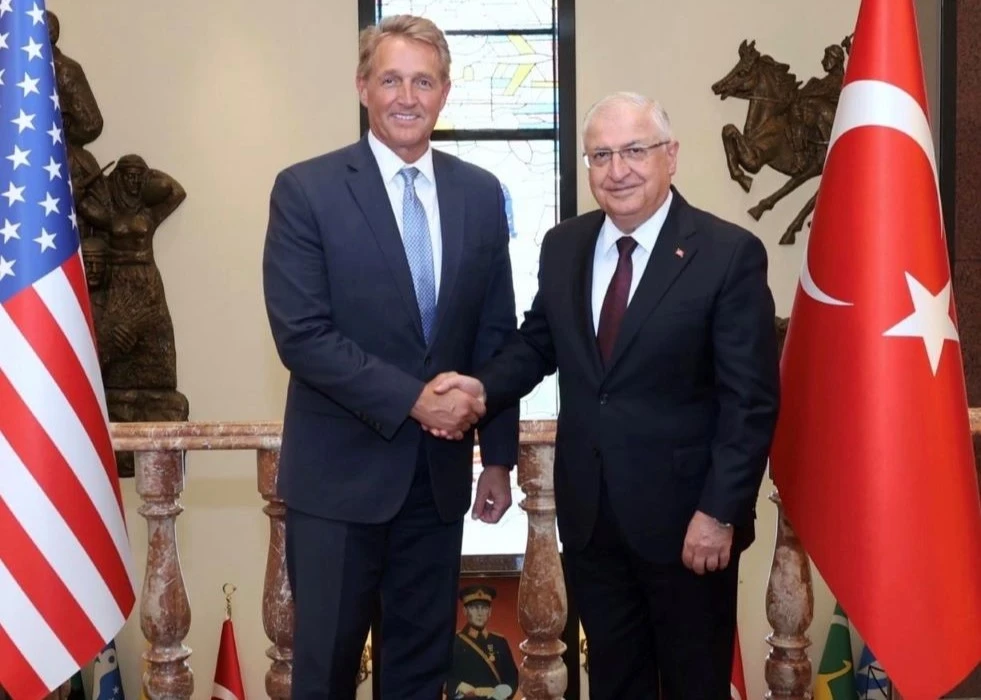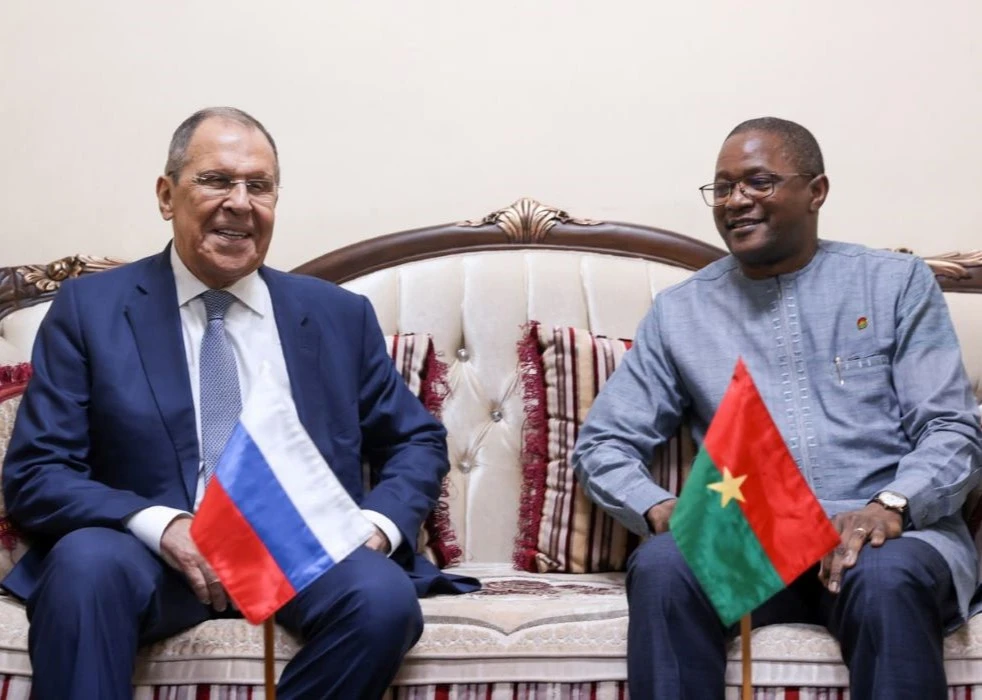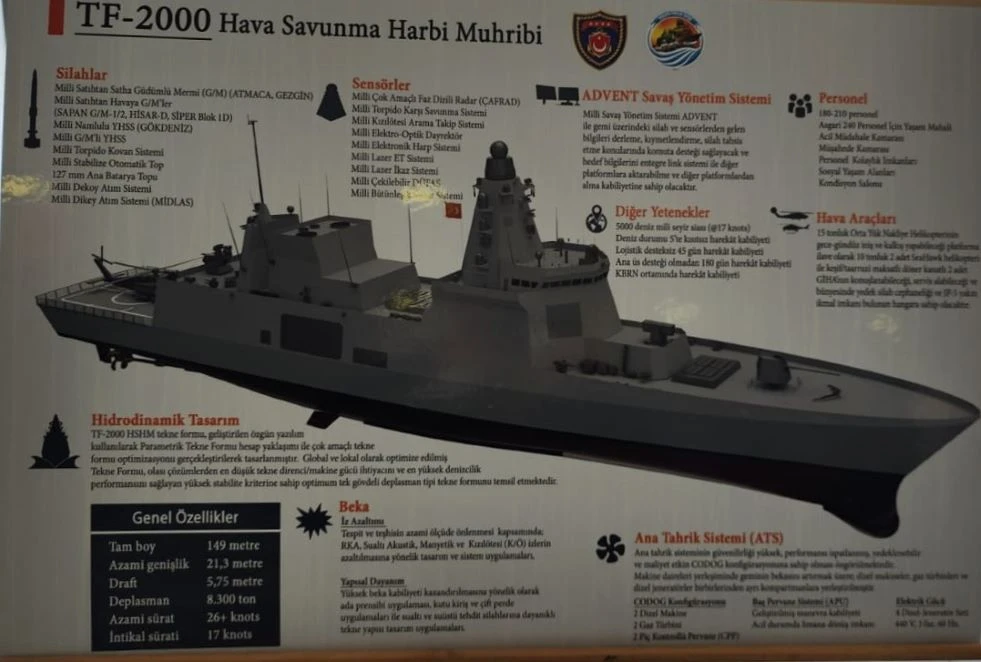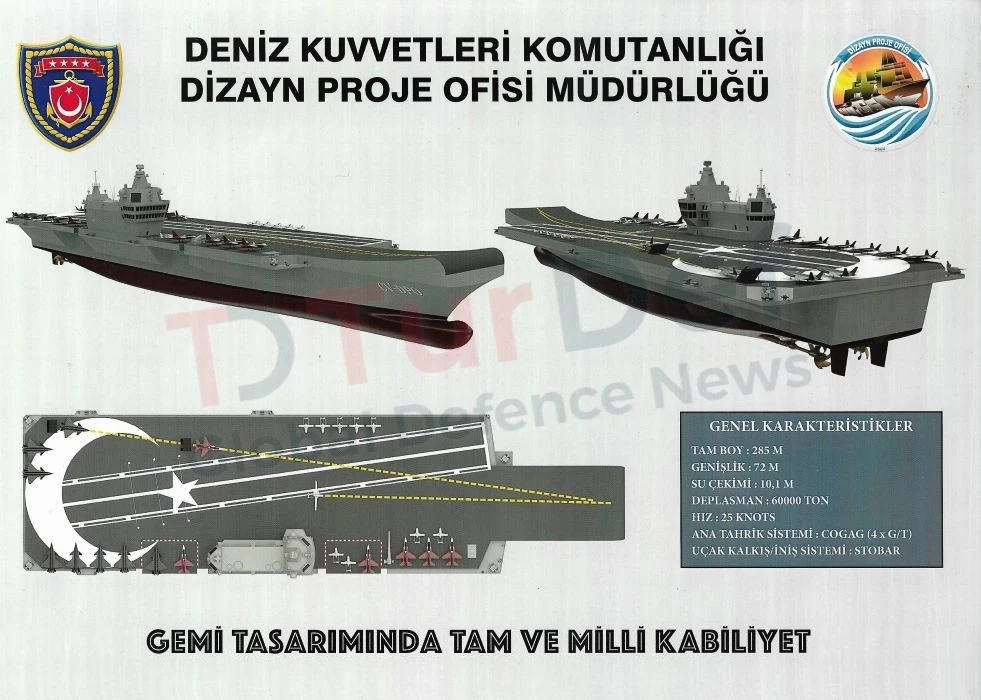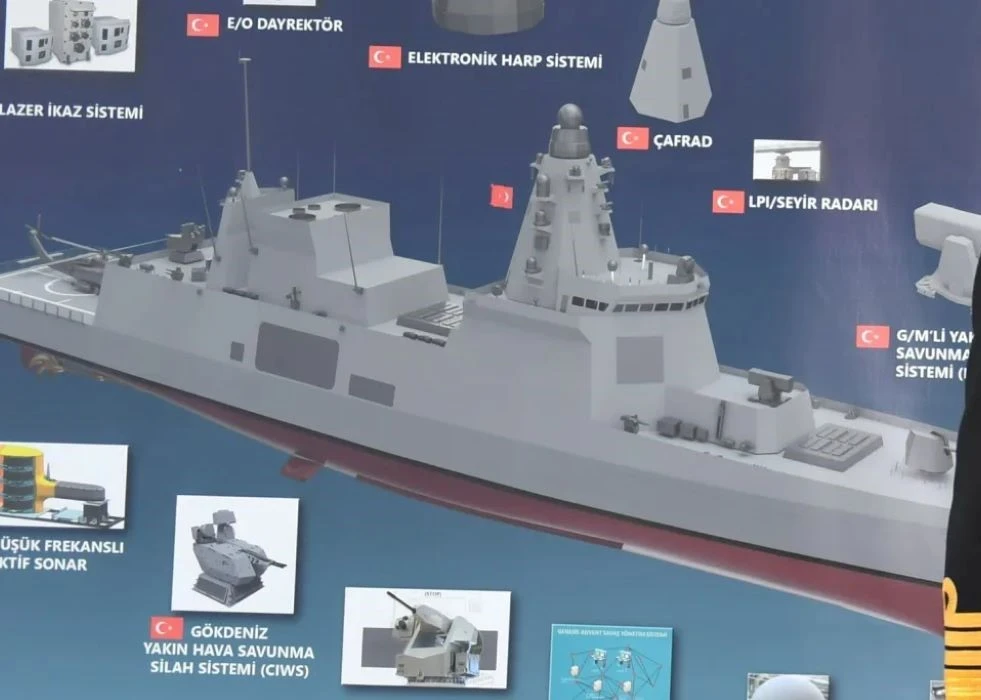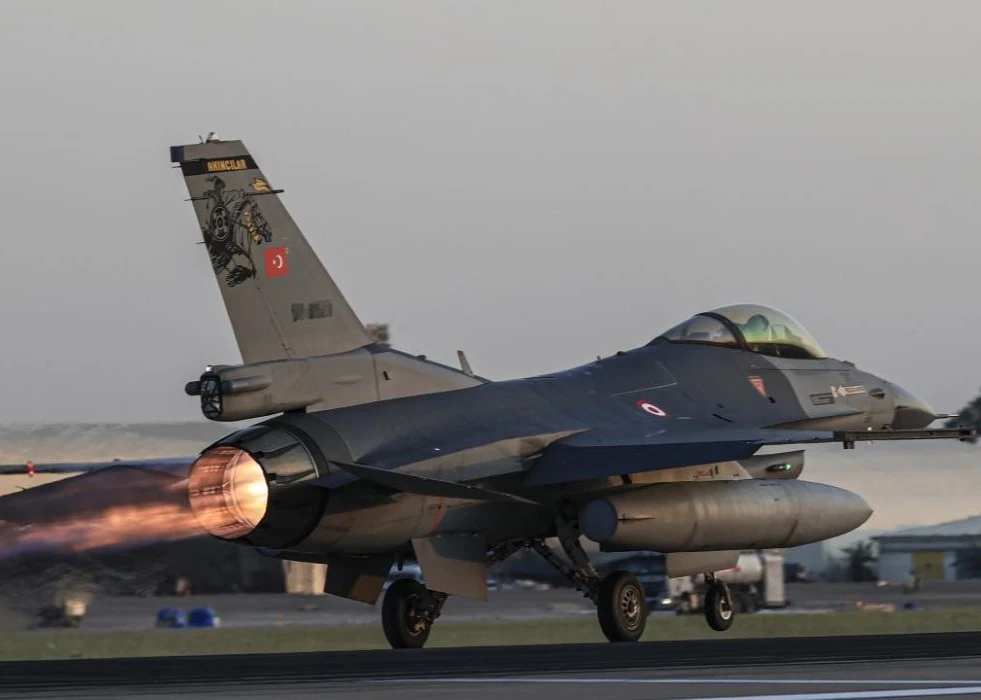The Greek publications Omegapress and ArmyvoiceGreece draw attention to Turkish-Egyptian relations and how Greece is getting downgraded in its relations with Egypt concerning the Exclusive Economic Zone (EEZ).
The Turkish-Egyptian relations were at their lowest level for the last ten years. This tension gave a path for Greece to elaborate bilateral relations at Turkiye’s disadvantages, mainly on the EEZ.
According to the publications, Turkish President Recep Tayyip Erdoğan’s visit to Egypt altered this path to a new development. The publications accuse the Greek government of being silent when it describes Turkiye as being energetic and question whether “Greece is ready to grant sovereign rights”.
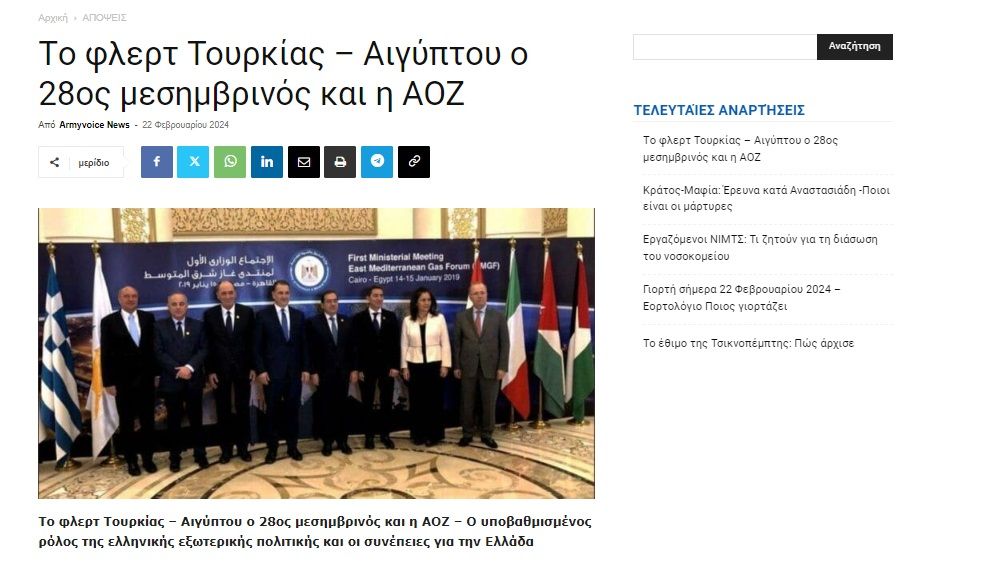
The publication believes that “the instability in Libya highlights Turkish foreign policy, which is forming an alliance with Egypt, hoping for EEZ arrangements and a continental shelf east of the 28th Meridian with Egypt. In this way, Turkiye’s negotiation with Greece, Egypt and Libya is limited only west of the 28th Meridian,” It claims.
ArmyvoiceGreece also states that Turkiye wants to negotiate for the area between Kastelorizo, Rhodes, Karpathos, and Crete, as it will have already regulated the potential Greek EEZ with Egypt between the 28th and the 30th Mesimbrino. “With this method, Kastellorizo will not influence the EEZ and continental shelf, while the Turkish EEZ will surround Cyprus.” It is worth remembering that Greece considers Cyprus a united island and does not recognise the Turkish Republic of Northern Cyprus.
The publication calls for NATO to be involved in the region by saying, “The complexity of the relations between Greece-Turkey-Egypt-Israel-Cyprus-Middle Eastern countries-Iran, requires that the upgrade of NATO’s southern wing, as a stability mechanism in the South East Mediterranean, be reconsidered.” The publication continues, “It is in the interest of our country, as a member of NATO, to seek to strengthen the role of NATO in the SE Mediterranean to contribute to the stability of the region and the protection of our national security, as long as the European security architecture has limited autonomy dependent on NATO.”


